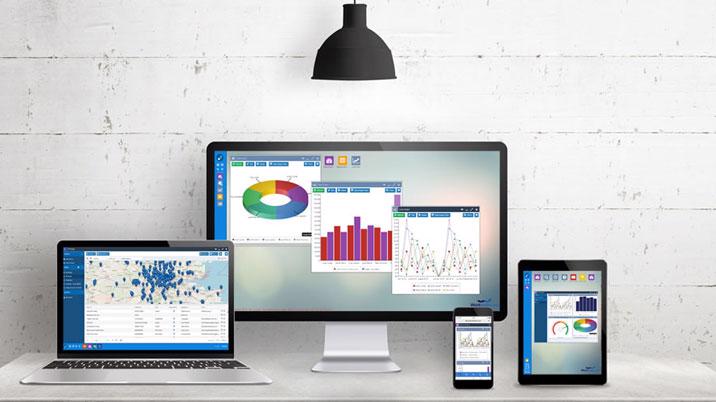
Do you have a single, consolidated customer database across your whole business?
If you don’t, then you will know that you only have a partial picture of who your customers are, what their interests are, what they buy, what they do and when they do it.
You’re getting by, but the reality is that you are under-performing because you don’t really know what’s going on. Decisions are being made on the back of hunches not facts.
The reality for many publishers is that they hold multiple and overlapping data sets, in different formats and places, some of which the business owner is probably not even aware of.
This means that it is impossible to get – at least not without a huge amount of time-consuming manual work – an accurate picture of your customer base, which results in you spending much more time on trying to work out where the opportunities lie, rather than on actually devising and executing business plans to take advantage of them. You are working in the dark.
If this describes your situation, then you are far from being alone. The good news is that there is likely to be considerable untapped growth potential in your business and there is expert help at hand to help you realise it.

I was in Reading in mid-August to meet with John Cheney and Andre Galinha, CEO and sales director respectively of Workbooks, a CRM solutions provider for the B2B and B2C publishing sector, specialising in mid-size publishers; those with turnovers of £5-50m and between 50-500 employees.
“Our vision”, says John, “is to be the de facto CRM provider for these companies.”
They seem to be making good progress. Existing publishing clients include Infopro Digital, Law Business Research, APL Media, Russell Publishing, ATG Media, Rapid News, IR Media, Ultima Media and the Good Salon Guide.
Workbooks was founded in 2008 by John and currently employs 60 people in Reading and the US. Publishing and media accounts for about a quarter of their business, and they also provide CRM solutions for the manufacturing, retail and technology sectors.
Why install a CRM platform?
“A good CRM platform will deliver four outcomes for publishers,” says Andre: “Revenue growth, better customer service, reduced operational costs and improved decision making.”
When Law Business Research started using Workbooks, the implementation involved the consolidation of 400 data sources. In addition to the many operational benefits the new standardised and centralised system delivered, said LBR’s Ron Doobay, the subscription sales team reported a 240% year-on-year growth in leads and 130% increase in conversions.
With success stories like that, I ask John and Andre, what’s stopping other publishers going down the CRM route?
“The kind of things we often hear,” says Andre, are: “‘good CRM systems are not affordable / available’, ‘we installed a CRM platform a few years back, and it went horribly wrong’, ‘it will be too disruptive and we haven’t got the time’, ‘we don’t have the in-house skills to get the best out of it’, ‘we are unique so it’s unlikely that any third-party system would be able to meet our needs,’ and last, but not least, ‘our data is too messy’.”
“These are all perfectly understandable views, but it won’t surprise you to hear that we have answers for them all! Our solution is affordable and our installation processes well-honed. Our ethos is to build successful long term partnerships with our clients. Yes, there will be some short-term disruption but this can be managed and the end result will be worth it. We provide the necessary skills and are very good at hand holding. Our solution meets 80% of all publishers’ needs out of the box, and the remaining 20% can be addressed as part of the installation process. As for messy data, that is the single biggest reason to install a CRM, not a reason not to.”
The opportunity
A CRM platform sits at the centre of a publisher’s operations and information is fed into it from the various fulfilment and publishing systems the publisher uses. Typically, says Andre, when a publisher installs Workbooks, such is the level of functionality built into the system, that publishers can often do away with a number of their existing systems and manage things like subscriptions, ad sales and event management direct from Workbooks if they choose.
“It’s important”, says John, “not to see data and metrics in dry abstract terms. It is the real-world publishing opportunities that integrated systems deliver that is the exciting thing. We’re talking about delivering game-changing improvements.”
Essentially, opportunities can be realised much more quickly as your decision-making is based on timely, accurate and transparent data. Perhaps for the first time, you are working with the lights on!
You’ll be able to see which subscribers are accessing your services and can then refine your onboarding strategies and boost retention rates; you can track all touchpoints in real time, greatly enhancing your lead-gen capabilities and the timely and automated marketing communications you can now set up will move those leads through the sales funnel, before you give them to your top salespeople to convert; you’ll be able to quickly and accurately report campaign metrics for each advertising client, proving ROI and justifying the premium pricing you’re itching to charge; you’ll have in-depth knowledge about your customers’ interests and behaviours, meaning you can now sell them many more things. The list of new opportunities is endless.
Delivering success
A good CRM platform has the potential to transform the fortunes of any publisher, but how can publishers guarantee a successful installation? After all, it’s a major project that affects most parts of the business.
John and Andre have seven tips:
- Put together an excellent project management team: “This team drives the project and is central to its success. Make sure you put good people on it. For each installation, we appoint an engagement manager who is the main contact for the client. The team also includes a lead consultant and other Workbooks specialists are brought in, as and when needed. Weekly client meetings are supplemented by a monthly meeting where executive sponsors, a senior board executive from Workbooks and the publishing client, are involved. These meetings ensure that potential problems can be flagged up early, and pressure brought to bear, if needed, on any project blockers.”
- Keep people informed: “Any new system will get some push-back in the early days, so good communications are essential to explain the reasoning, manage expectations and to tell people what to expect and when.”
- Get buy-in from everyone who will be affected: “Explain to everyone what the changes will mean for them – explain how it will make their jobs easier and the benefits they will see.”
- Train your staff: “Proper training is a no-brainer. Skimping in this area is always a false economy.”
- Document everything: “System requirements, action points, responsibilities and timelines all need to be agreed and carefully documented.”
- See CRM as a journey not a product: “A CRM platform cannot be left unattended. It needs managing. As the publishing business evolves, the system needs to evolve too, to keep pace with the changes. Good CRM is a mix of tech, people and processes and they’ve got to move in tandem. That is why, after go-live, we implement what we call a ‘customer success programme’, which involves an annual performance consultation and review.”
- Err… choose the right vendor: According to John, CRM is the most competitive software market of them all. There are loads of players out there, but only a few that specialise in publishing. If you go with a generalist provider, then a huge amount of customisation will be necessary, that you will need to take ownership of.
Dip your toe in the water
Installing a new company-wide CRM platform is a big deal. It promises to deliver major revenue and operational benefits, but there will be some short term disruption. Practically every area of your business will be affected, so it’s not a decision to be taken lightly.
That is why Workbooks encourages prospective clients to attend a two-day workshop for senior management. It’s not free, but is heavily subsidised by Workbooks. The idea is to take time out to think strategically about the business, to formulate medium and long term plans, to think through objectives, priorities and opportunities and to work out what are the obstacles to achieving those objectives. The critical thing is that this workshop is not about the tech, it’s not about Workbooks, it’s about the publisher’s own business.
The workshop includes drill-down sessions into each department – marketing, sales, production, IT, audience etc – to establish specific department-level objectives and tasks. It establishes where the pain points are and what needs to be done.
The end result is a detailed strategy document that articulates the company’s vision and ambitions, details the to-do items and prioritises them. It helps separate the wood from the trees and breaks everything down into manageable action points. It’s a road-map and a valuable document in its own right.

It’s up to the publisher what they do with it. They can ignore it, try to implement some of it themselves, take it to another systems developer, or, as Workbooks obviously hopes, use it as the blueprint for a long lasting relationship with them!
But the choice is the publisher’s. It’s a low risk, low cost intensive introduction to the world of CRM. A publisher will find out where their company stands at the moment, and the steps it needs to take to have a fit for purpose CRM platform.
“Call us now,” says Andre, “and let’s start a conversation. We can talk you through the opportunity and what’s involved. If you like what you hear but are nervous about committing, then try our workshop option. You will get to know our capabilities, you will meet key members of our team and you will, at the very least, come away with a meaningful piece of consultancy. It has the potential to be the start of an exciting journey that equips your company to excel in the world of 21st century publishing. Hopefully, that will be with Workbooks.”
Andre Galinha presented a webinar in October 2019, titled ‘5 ways CRM can help improve your ad sales performance’. You can view a recording here.

Workbooks
9 Suttons Business Park, Reading, RG6 1AZ
Andre Galinha, Sales Director
0118 3030 116










